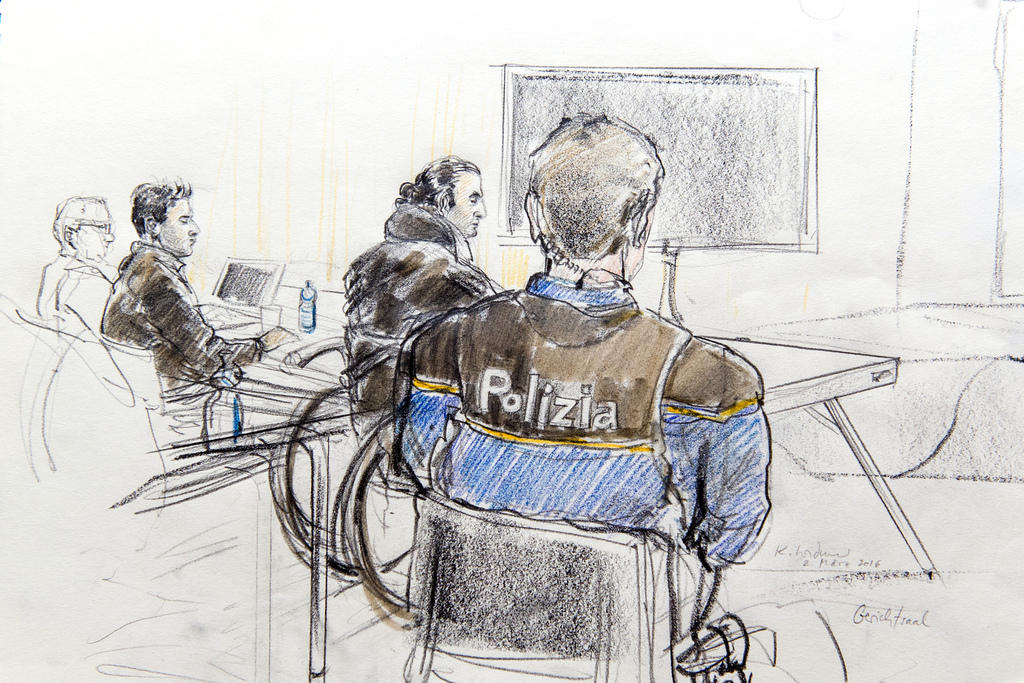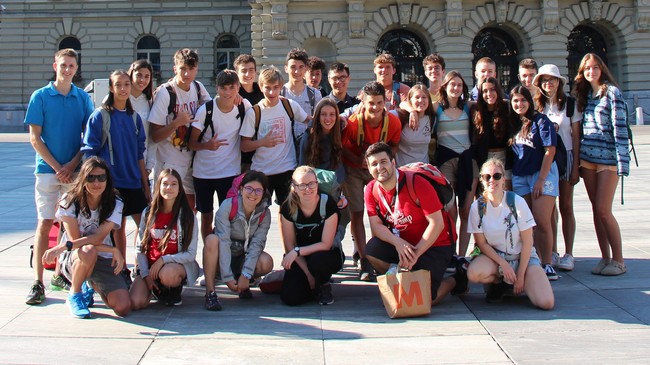
Turkey sends convicted IS supporter back to Switzerland

An Iraqi man convicted in Switzerland of supporting Islamic State (IS) has been refused entry by Turkey after the Swiss authorities tried to deport him. He and two others who have served prison sentences remain on Swiss soil.
Switzerland has a policy of deporting foreigners who commit serious or multiple crimes, but the case highlights the problems that can be encountered carrying this out.
The Tages Anzeiger newspaper on Wednesday reported that one of the trio convicted of breaching anti-terrorism laws flew out to Turkey with his wife and child last month having agreed to leave Switzerland. But the 32-year-old was denied entry at Istanbul airport and was forced to return to Switzerland.
The newspaper added a so far unconfirmed twist to the tale: that Turkey had been previously tipped off by the Swiss authorities about the man’s terrorist involvement.
Under international human rights treaties, Switzerland is unable to deport the man to his home country of Iraq because he fears he may be tortured or killed if he is sent there.
“Bridegroom” suicide bombers
The case has already caused controversy in Switzerland after the man’s three-and-a-half year prison sentence was commuted by a third last year, allowing his early release for good behavior. His two co-conspirators, who were arrested in 2014, have also served their Swiss prison sentences but have yet to be deported.
Last year three men became the first people convicted in Switzerland of belonging to IS. Prosecutors argued that had been trying to bring information, materials and personnel into Switzerland necessary to carry out an attack.
Intercepted Facebook messages allegedly contained coded messages. “Baking bread” meant making explosive devices, “watermelons” referred to explosives and weapons while “bridegrooms” stood for suicide bombers, the court heard.
However, the court ruled that this did not necessarily constitute a terrorist activity so they were convicted of lesser offences. They received sentences of up to four years and eight months which included the period of their incarceration from March 2014.
In 2010, Swiss voters voted in favour of an initiative to deport foreigners who commit serious crimes in Switzerland. But the rightwing Swiss People’s Party, who initiated the referendum were unhappy with the way the government “watered down” the initiative’s aims, particularly the insertion of a clause that outlawed deportations in hardship cases.
In February of last year, voters rejected another People’s Party sponsored initiative to tighten up the deportation laws.
Laws beefed up
Last month, the government signalled its intention of beefing up anti-terror legislation. It plans to raise the maximum jail sentence for people who support or participate in terrorism from five years to ten years, and 20 years for leaders of terror groups.
The proposed new measures, which have been sent out for consultation, would replace the current temporary ban on terror organizations including Al-Qaida and Islamic State with new targeted legislation making it a criminal offence to recruit people to join a terror group, receive terrorist training, or travel abroad to commit terrorism.
The new measures – covering both terror groups and individuals – will allow Switzerland to ratify the Council of Europe’s 2005 Convention on the Prevention of Terrorism and its 2015 additional protocol.
At the end of 2016, 497 people were being monitored by the intelligence services for spreading online jihadist propaganda in Switzerland or for using the country as a base for such activities. However, not all these are considered a threat to security, the report noted. Of 70 cases being investigated by federal police, about 60 are the subjects of a criminal proceeding.
Last year the Federal Police Office also issued 122 people with entry bans, of whom 107 were suspected of committing terror acts or of supporting banned groups.

In compliance with the JTI standards
More: SWI swissinfo.ch certified by the Journalism Trust Initiative
















![The four-metre-long painting "Sonntag der Bergbauern" [Sunday of the Mountain Farmers, 1923-24/26] had to be removed by a crane from the German Chancellery in Berlin for the exhibition in Bern.](https://www.swissinfo.ch/content/wp-content/uploads/sites/13/2025/12/01_Pressebild_KirchnerxKirchner.jpg?ver=cb688ed5)














You can find an overview of ongoing debates with our journalists here . Please join us!
If you want to start a conversation about a topic raised in this article or want to report factual errors, email us at english@swissinfo.ch.